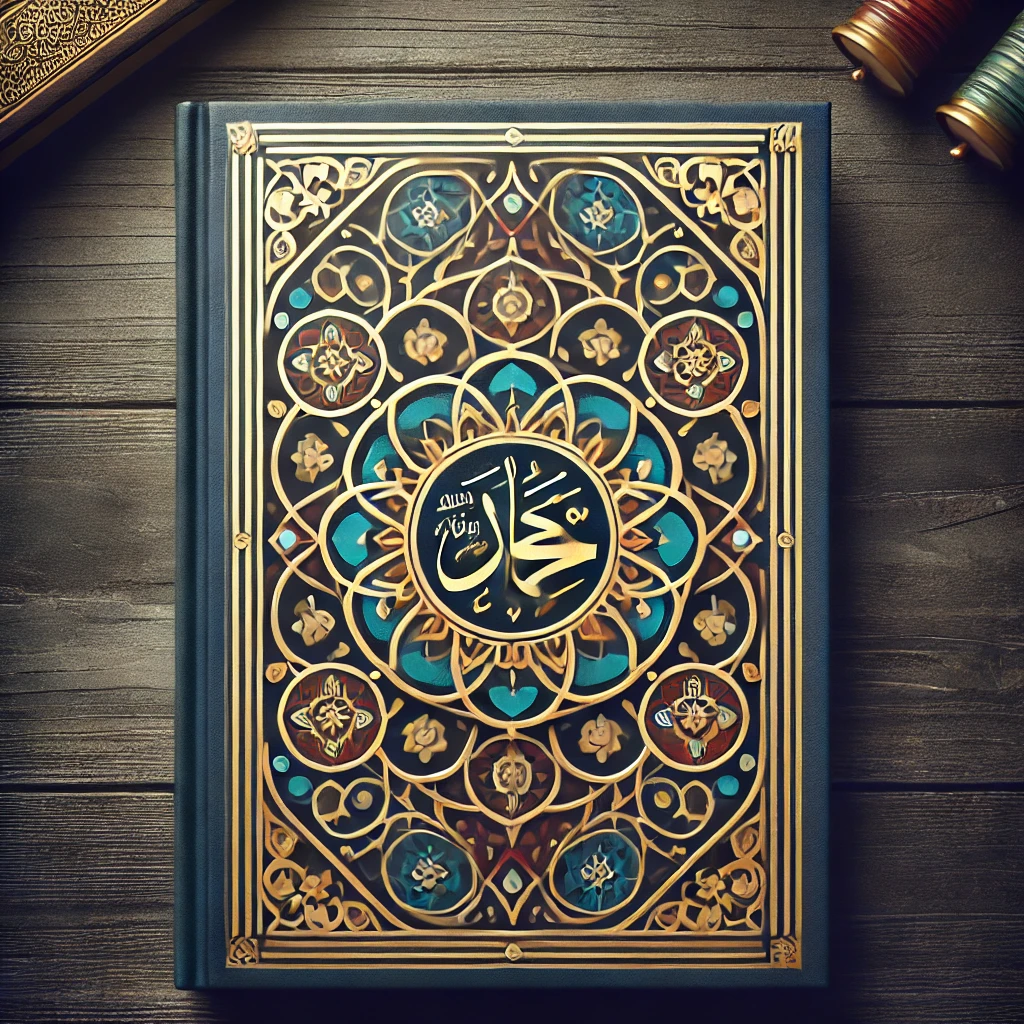Explore the sacred traditions of the Beloved Prophet Muhammad (SallAllaho Alaihi wa Sallam) surrounding the practice of animal sacrifice.
All Praises is due to Almighty Allah SubHanuhu wa Ta’ala, Peace and Blessings be upon the most perfect of creations, His Beloved Habeeb, Sayyiduna Rasoolullah SallAllaho Alaihi wa Sallam his noble Family and the illustrious Sahaba Ridwanullahi Ta’ala Alaihim Ajma’een and all the pious servants of Almighty Allah SubHanuhu wa Ta’ala.
SACRIFICING ANIMALS
I. Hadrat Zaid ibn Arqam Radi Allahu Ta’ala Anhu reported that the companions of the Messenger of Allah SallAllaho Alaihi wa Aalihi wa Sallam asked:
يا رسول الله ما هذه الأضاحى قال: سنة أبيكم إبراهيم. قالوا فما لنا فيها يا رسول الله قال: بكل شعرة حسنة. قالوا فالصوف يا رسول الله قال: بكل شعرة من الصوف حسنة
“O Messenger of Allah! What is this sacrifice?” He said, “It is the practice of your father Abraham.” They asked, “What is the reward for us in it?” He said, “For every hair, you will be rewarded.” They asked, “for the wool, O Messenger of Allah?” He said, “For every strand of wool you will be rewarded.”
Hadrat Zaid ibn Arqam (Radi Allahu Ta’ala Anhu).
[Sunan Ibn Majah, Vol. 1, Page 226, Hadith 3247]
II. Hadrat ‘Ayesha Radi Allahu Ta’ala Anha reported that the Messenger of Allah SallAllaho Alaihi wa Aalihi wa Sallam has said :
ما عمل آدمى من عمل يوم النحر أحب إلى الله من إهراق الدم إنها لتأتى يوم القيامة بقرونها وأشعارها وأظلافها وإن الدم ليقع من الله بمكان قبل أن يقع من الأرض فطيبوا بها نفسا
“On the day of sacrifice no one does a deed more pleasing to Allah than the shedding of blood. The sacrifice will come on the Day of Resurrection with its horns, its hairs and its hooves; and the blood finds acceptance with Allah before it falls on the ground.”
Prophet Muhammad (SallAllaho Alaihi wa Aalihi wa Sallam)
[Sunan Tirmidhi, Vol. 1, Page 275, Hadith 1572]
III. Hadrat Hanash Radi Allahu Ta’ala Anhu reported:
رأيت عليا رضي الله عنه يضحي بكبشين فقلت له : ما هذا ؟ فقال : إن رسول الله صلى الله عليه وسلم أوصاني أن أضحي عنه فأنا أضحي عنه
I saw Hadrat ‘Ali sacrificing two rams. I asked him: “what is this?” He said, “The Messenger of Allah had enjoined me to sacrifice on his behalf; so I am sacrificing on his behalf.”
Hadrat Hanash Radi Allahu Ta’ala Anhu
[Mishkat, Page 128, Hadith 1642]
IV. Hadrat Abu Hurairah Radi Allahu Ta’ala Anhu reported that the Messenger of Allah SallAllaho Alaihi wa Aalihi wa Sallam has said,
من وجد سعة فلم يضح فلا يقربن مصلانا
“Such a person who had the ability and means to sacrifice an animal, but (despite this) he did not do so; should never come near our Eidgah (place where the Eid prayers are performed).”
Prophet Muhammad (SallAllaho Alaihi wa Aalihi wa Sallam).
[Musnad Ahmad, Vol. 18, Page 27, Hadith 8496]
V. Hadrat Umm-e-Salmah Radi Allahu Ta’ala Anha reported that the Messenger of Allah SallAllaho Alaihi wa Aalihi wa Sallam has said,
إذا رأيتم هلال ذى الحجة وأراد أحدكم أن يضحى فليمسك عن شعره وأظفاره
“when you see the new moon of Dhul Hijjah and one of you intends to make sacrifice, he must not shave his hair, trim it, or clip his nails.”
Prophet Muhammad (SallAllaho Alaihi wa Aalihi wa Sallam).
[Sahih Muslim, Vol. 2, Page 160, Hadith 5234]
IMPORTANT NOTES
- For the condition of sacrificing, the Malik-e-Nisab is the person who possesses 52 ½ tolas (620 grammes) of silver or 7 ½ tolas (88 grammes) of gold; or they have the same amount equivalent to either of the above item in value in business goods or non-business goods, which are not goods that are the basic necessities of life. The wealth and/or property should be ‘extra’/above one’s basic necessities (hajat-e-asliyyah).
- Nowadays, the price of silver is less. The price of silver in current-day value is approximately £2 per tola. Therefore, anyone who possess the value of: £2 x 52 ½ tola = £105 – which exceeds his/her basic necessities and also the debt which is to be paid back – then it is wajib on such a person to sacrifice an animal.
- Such a Malik-e-Nisab who has already sacrificed an animal on behalf of himself, and the following year he is still a Malik-e-Nisab then again it is wajib upon him to sacrifice an animal on his behalf. This ruling applies for each year (that sacrificing is wajib if a person is a Malik-e-Nisab). It has been stated in a Hadith: “It is wajib upon every household to sdacrifice an animal each year.”
- If a Malik-e-Nisab sacrifices on behalf of someone else, instead of sacrificing an animal on behalf of himself (i.e. does not sacrifice an animal on his behalf), then he has committed a great sin. Thus, if he wants to sacrifice on someone else’s behalf, then he should make preparations to buy another animal and sacrifice it.
- Some people who think that, “It is wajib only once in a lifetime to sacrifice an animal on one’s behalf” is farce and wrong, which has no proof; as it is wajib upon a Malik-e-Nisab to sacrifice an animal on his behalf each year.
- In villages, it is permissible to sacrifice animals on the 10th of Dhu’l Hijjah after the break of dawn (Subh-e-Sadiq). However, it is Mustahab to sacrifice it after sunrise. [Fatawa-e-‘Alamgiri Vol. 5 Page 260]
- It is not permissible to sacrifice animals before the Eid prayer in cities and towns. [Bahar-e-Shari’at]
- Such a poor person – who cannot afford to sacrifice an animal – should also refrain from shaving or trimming hair and clipping nails; so as to resemble the pilgrims on the 10th of Dhul Hijjah.
- It is not permissible to give the skin or the meat of the sacrificed animal as the wage to the butcher or the one who has sacrificed the animal. [al-Durr al-Mukhtar]
- It is not permissible to give the meat of a sacrificed animal to any infidel.
- The method of sacrificing an animal is to lay it on its left, such that its face is towards the Qiblah and then place the right foot on its side and holding a sharp knife (concealed obviously from the animal or if it is blind-folded then there is no harm). The animal should be sacrificed using a sharp knife.
- If the Qurban has been performed on behalf of someone who has passed away, then the meat cannot be eaten by the person himself nor can it be given to a rich person. It is wajib to give all the meat to the poor as sadaqah. [Bahar-e-Shari’at]
- The animal’s skin, reins, saddle etc should all be given in sadaqah, one can use the skin for their own usage, such as to make the skin into a leather bag or a prayer mat. However, one cannot sell the skin to someone else, and then use the money for their own benefit. If this has been done, then the money received should be given as sadaqah.
- Nowadays, people give the animal skin to Madrissahs and other Islamic institutions. This is perfectly permissible. If one sells the skin with the intention of giving the money received to the Madrissa, then this is also permissible. [‘Alamgiri, Bahar-e-Shari’at]
- The skin of the sacrificed animal cannot be given to the Imam as his wage. Yes, however, it can be given to him as a gift or for his benefit. [Bahar-e-Shari’at]
- A camel must be at least five years old; a buffalo should be at least two years old; and a sheep, lamb or a goat should be at least one year old. [al-Durr al-Mukhtar]
- The animal intended to be slaughtered should be big and health, and should be free from any faults or defects. If there is a minor defect in the animal, then the Qurbani will count, but it is Makruh. If there is a major defect, then the Qurbani will not count. [al-Durr al-Mukhtar, Radd al-Muhtar, Fatawa-e-‘Alamgiri] . villages, it is permissible to sacrifice animals on the 10th of Dhu’l Hijjah after the break of dawn (Subh-e-Sadiq). However, it is Mustahab to sacrifice it after sunrise. [Fatawa-e-‘Alamgiri Vol. 5 Page 260]
- The animal intended to be slaughtered should be big and health, and should be free from any faults or defects. If there is a minor defect in the animal, then the Qurbani will count, but it is Makruh. If there is a major defect, then the Qurbani will not count. [al-Durr al-Mukhtar, Radd al-Muhtar, Fatawa-e-‘Alamgiri] .
Some think that sacrificing one animal will suffice for one whole household; all of whom are Malik-e-Nisab. This is wrong. Each and every person from such a household should sacrifice an animal on their behalf. Yes, however, a household can share seven parts from a ‘large’ animal such as a camel, cow, buffalo etc.


